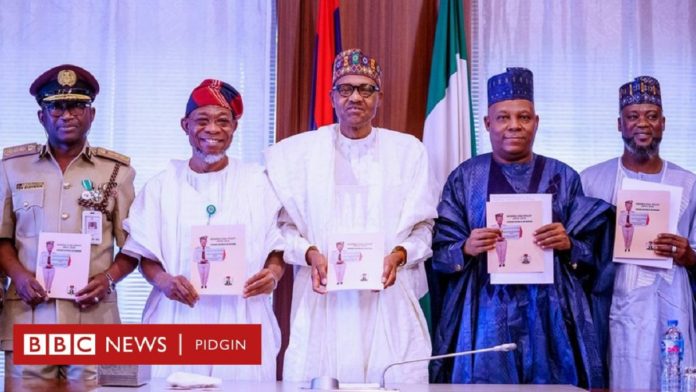The announcement of the Visa on Arrival policy last December by President Muhammadu Buhari at the Aswan Forum, in Egypt, was greeted with loads of condemnation from some quarters, largely due to misconception, and, perhaps, mischief.
Chief among the allegations was that it was a ploy to import more killers into the country under official cover, and that foreigners would come to take available job opportunities meant for Nigerians.
With the official launch of the Nigeria Visa Policy (NVP) 2020 by President Buhari on Tuesday, here are some salient points to note:
-A greater part of 2019 was devoted to conceiving and enunciating the policy, with retreats, conferences and engagements with stakeholders by the Nigeria Immigration Service. These held in August, October, and December, in Lagos, Benin, and Abuja, respectively. It was, therefore, not a hasty decision.
-NVP 2020 is a global visa system, and there is biometrics linked to online applications for each applicant. Chances of criminals beating the system are negligible. Biometrics is to be conducted at port of entry.
-Visa on Arrival to be issued only at airports, not at land borders.
-There are three categories of visas: short visit, temporary, and permanent residence.
-From the previous six, there are now 79 classes of visa.
-There is Visa for Diaspora Nigerians by birth, with dual citizenship.
-Visa on Arrival is only for short visits, and there is little chance that visitors will come in to take jobs which should have been for Nigerians.
-The system is automated. No cash transaction, so the chances of corruption are reduced.
-NVP is part of a wider reform ‘NIS Border Strategy, 2019-2023.’
-It holds immense economic benefits for the country. As President Buhari said; “The Nigeria Visa Policy 2020 is intended to attract innovation, specialized skills and knowledge from abroad to complement locally available ones…it will support the attainment of a globally competitive economy for Nigeria by building on the efforts of the Presidential Enabling Business Environment Council. The policy is expected to improve the business environment, attract Foreign Direct Investment and boost tourism without compromising national security.”







